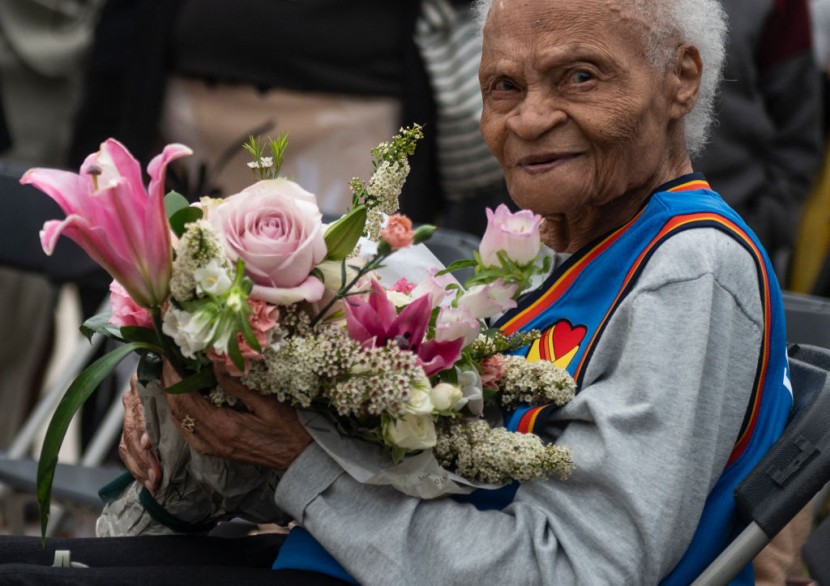
The oldest living survivor of the infamous Tulsa Massacre turned 110 this week — more than a century after her city was burned to the ground during an anti-Black race riot.
Viola Fletcher was just seven years old when a young Black man was accused of sexually assaulting a white woman, after the pair rode in an elevator together. The white woman said that the Black man had only touched her arm and that she did not wish to press charges.
The following day, the man was detained and a local newspaper published an inflammatory account of the incident that inflamed the city, already experiencing heightened racial tensions. White rioters soon descended on the city's Black neighborhoods burning 35 city blocks and killing an unknown number of Tulsa residents.
"The neighborhood I fell asleep in that night was rich - not just in terms of wealth, but in culture, community, heritage, and my family had a beautiful home," Fletcher testified to Congress in 2021. "Within a few hours, all that was gone."
Thank you for testifying, Ms Viola Fletcher https://t.co/5X9xczsOP4 pic.twitter.com/1JMufjc6xS
— Kirsten Bibbins-Domingo (@KBibbinsDomingo) May 20, 2021
In spite of her struggles, Fletcher remains proud of her heritage and identity.
I'm Black and I'm proud," she said, according to People. "Nothing you can do about who you are, regardless of what you look like... We have the same red blood as other people."
During her adult life, Fletcher lived outside of Oklahoma but she eventually settled in her home state again. During World War II, she assisted the war effort by working in a California shipyard, according to a 2014 oral history interview conducted by Oklahoma State University.
After returning to Oklahoma, she worked in private homes until retiring at the age of 85. She has three children and several grandchildren. Her husband Robert Fletcher was a truck driver and worked at filling stations before he retired.
During the oral history interview, Fletcher attributed her long life to doing "the things that are good for you- sleeping and eating and exercising."








